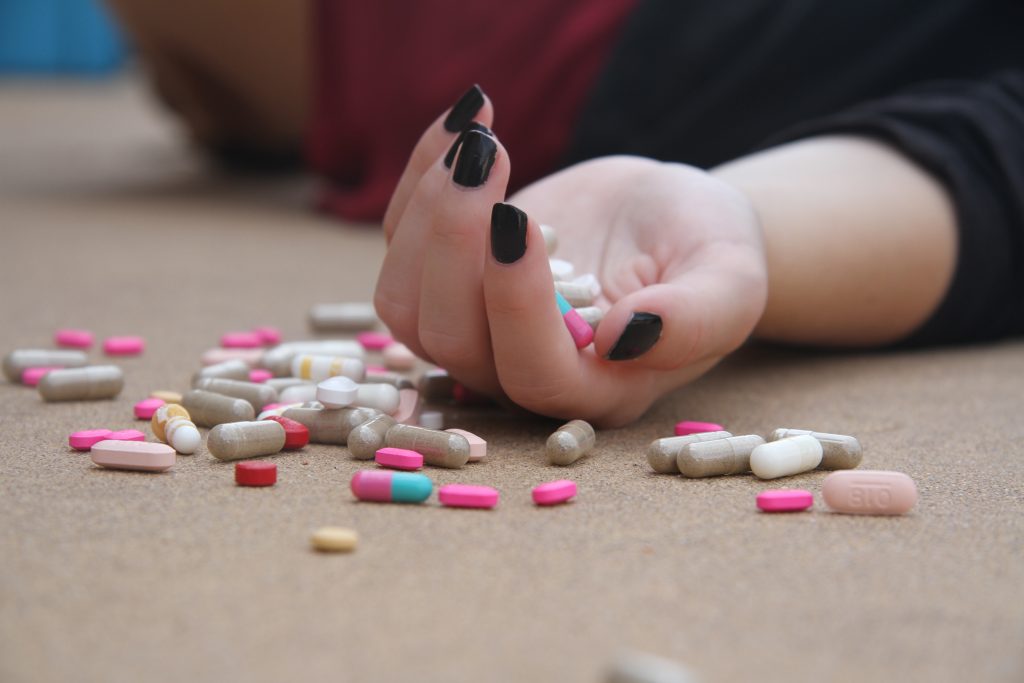According to the Addictions and Recovery Organization, 15 to 30 percent of those who are alcohol- or drug-dependent suffer from addiction and depression at the same time. But there are several other causes. Some of the most common causes include chronic physical or emotional pain, depression or anxiety, family history, and poor coping skills when it comes to combating stress. Then, there are those who resort to drugs or alcohol due to peer pressure.
No matter the reason one has become hooked on drugs or alcohol, though, one thing is for sure – anyone CAN recover.
Everyone gets a second chance at life—at changing for the better.

First Step Towards the Road to Recovery
The first step that an addict must take to fully recover from such a disease is to admit to themselves and to their loved ones that they do have a problem with substance abuse.
It’s easier said than done.
Yes, admitting to yourself that you have an addiction problem can be the hardest yet most important thing to do before anything else. Acknowledging that you have difficulty controlling how much or how long you use certain substances is the most crucial step because only then will you be able to seek professional help.
Admitting that your dependence on drugs or alcohol has negative consequences in your life is all part of identifying the problem. By acknowledging that your addiction is the reason you have lost interest in life, you’ll be able to heed your loved ones’ desire to intervene and get you back on the right track.
Changing for the Better
The people around a drug- or alcohol-dependent person will find all possible ways to help an addict. They love you and care for you that’s why they want to help you. It’s only a matter of acknowledging that you do need their help.
Family and friends can suggest that an addicted person try one or a combination of the following methods to help them recover from addiction.
Medication
For each stage of treatment and recovery, there is a particular medication one can take. There’s a pill for helping patients cope with depression, sleeplessness, restlessness, and other mood disorders, which are symptoms that may be experienced by those who are quitting drugs. There are also prescribed medicines that are designed for preventing relapse by interfering certain triggers, helping patients fully recover.
Therapy
Behavioral therapy is also another useful method when it comes to how to help an addict. Using this form of treatment, patients are engaged in activities that can modify their attitudes related to drug use. By doing so, they will be able to handle circumstances that could trigger their craving for certain substances. Just as a dentist focuses on oral health to prevent future issues, behavioral therapy can enhance the effectiveness of prescribed medications to ensure that patients stay within the rehabilitation program.
Rehabilitation
There are two types of rehabilitation treatments: inpatient and outpatient. Inpatient treatment is best suited for those suffering from chronic addition to ensure that they are living in a drug-free facility and that they receive medical care 24/7.
Holistic Treatment
There are people who believe that science (i.e., therapy, medications, and rehabilitation) can help heal them faster. Then, there are those who believe that a spiritual or experiential approach is the way to go. This is what The Next Step (TNS) is all about.
They use the LER or Living Experiential Recovery approach, which is an action-learning therapy. The program includes physical immersion to ensure a healthy change.
Helping a Friend in Need
Friends and loved ones who care about you will most likely want to extend all kinds of help to ensure that you won’t fall off the wagon.
If you’re a concerned individual looking for the best way to help an addict, here are some tips for you.
-
- Educate yourself about addiction.
That way you’ll be more informed about how best to help your friend. By doing so, you won’t miss the signs that your loved one is having a relapse. - Speak up.
Oftentimes, those suffering from addiction won’t admit that they have a problem. Instead of waiting for the person to open up to you, speak up and offer your support. Let them know that you’re there for them no matter what and that you’ll do everything in your power to help them become cured. But make sure that you don’t sound like you’re preaching or threatening them. Let them know that you’re intervening because you care so much about them. - Get involved.
Even after your friend or relative has entered rehab, make sure that you they know that you are continuously supporting them. You should also consider joining support groups to know what you can and need to do every step of the way. - Set boundaries.
To make sure that your loved one knows that you are serious about them getting sober, set boundaries. You can tell them that you love them but they can’t be in your house if they can’t get cleaned or sober. This will open up the patient’s eyes to the consequences of their addiction.
- Educate yourself about addiction.
Freedom. Finally.
If you are really concerned about a loved one’s condition, you need to help them stick to their recovery goals. Contact us at [email protected], so we can help keep you informed about the many recovery programs we offer!

